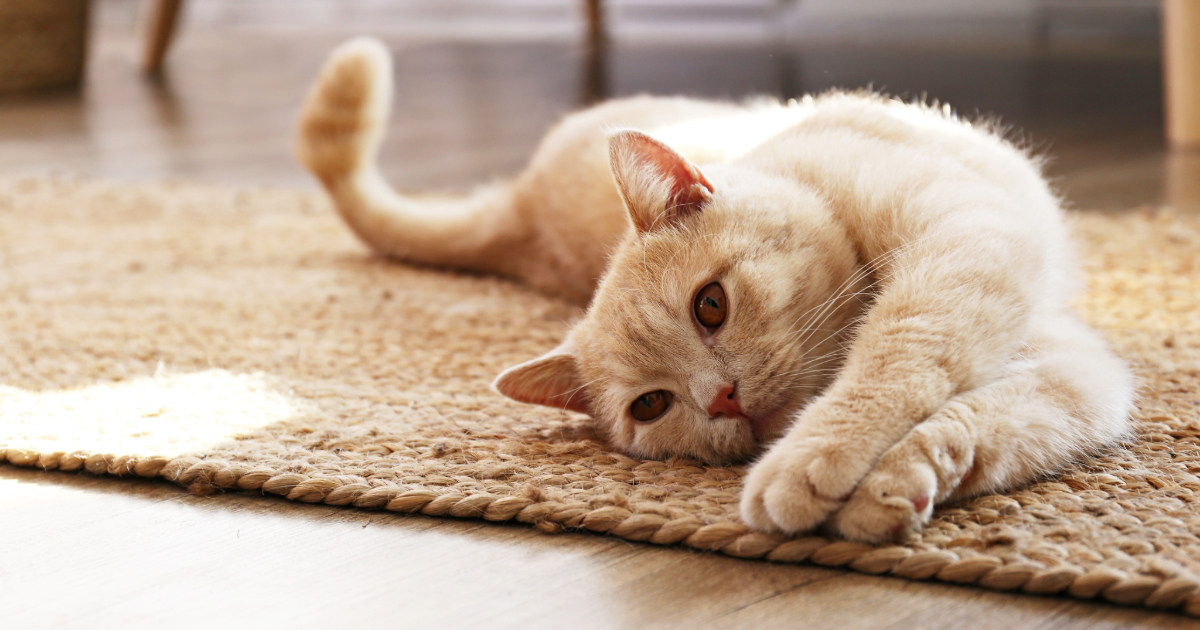Cats, like humans, can experience stress, and prolonged cat stress can have a significant impact on their overall health and well-being. Whether it manifests as behavioral changes, health issues, or a decrease in their quality of life, managing and preventing stress in cats is essential.
How to Prevent Cat Stress: Key Steps to Keep Your Feline Friend Happy
Here are key steps to reduce or eliminate stress for your domestic cat:
Establish a Predictable Routine
Cats are creatures of habit. Sudden changes in their environment or schedule can be unsettling.
- Feed your cat at the same times each day.
- Stick to a regular playtime schedule.
- Avoid abrupt changes in your household, such as rearranging furniture or introducing new pets, without proper preparation.
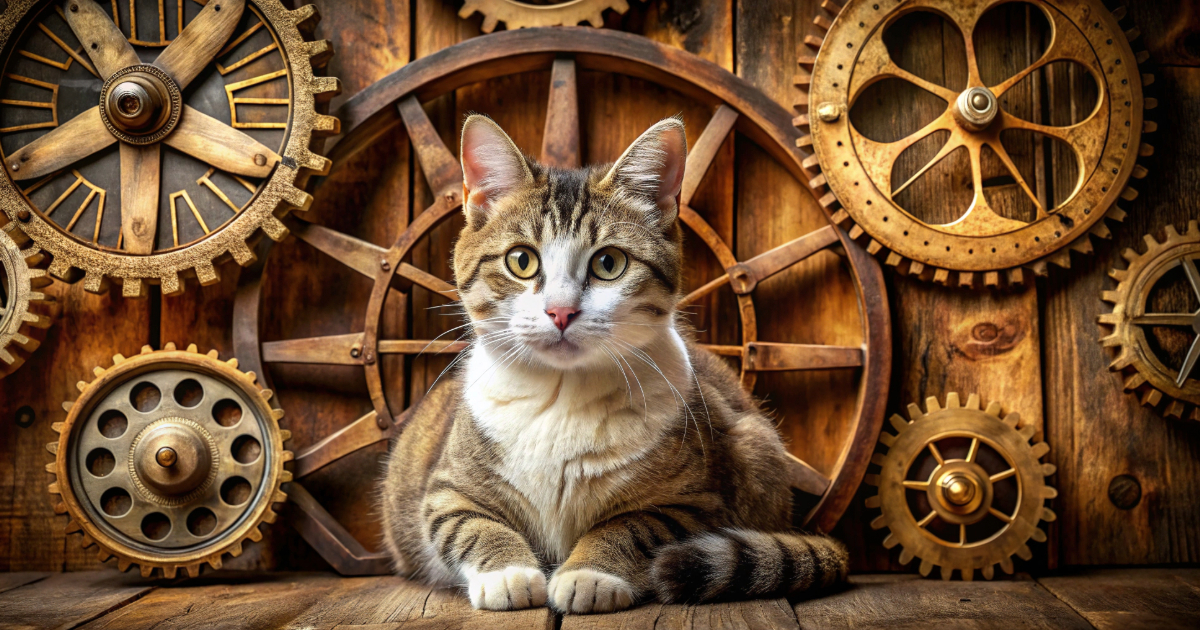
Avoid Drastic Changes in the Home: Create a Safe and Comfortable Environment
Did you recently move to a new home? Or perhaps you frequently rearrange furniture in your current home? Home repairs or remodeling? Cats are sensitive to their environments, and constant changes in the home can make your cat feel like he or she is out of control. What you can do: Try to keep as many things tidy and consistent as possible. Remember to make sure your cat has unobstructed access to food, water and the litter box at all times.
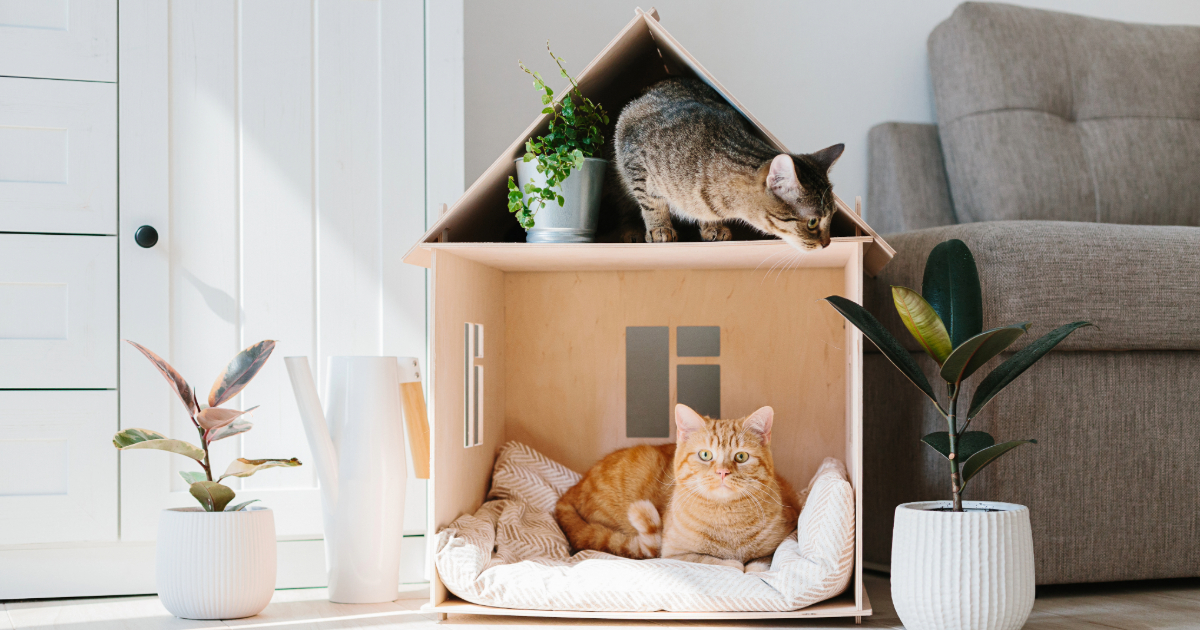
Cats thrive in stable and predictable surroundings. Ensure they have a dedicated space where they feel secure and can retreat when they need alone time. A cozy bed, a quiet corner, or a high perch can serve as a haven for your cat.
- Provide hiding spots, such as boxes or enclosed cat trees.
- Maintain a consistent household routine to reduce unpredictability.
Addition or Subtraction to the Social Circle
If you adopt another pet, improper introduction can stress out your cat. A new human – say, a baby, or guests, or a new significant other – can stress your cat out as well. Similarly, the loss of family member – in the case of death, or even a child heading off to college – changes your cat’s social circle in a stressful way.
What you can do: Since these adjustments are unavoidable, help your cat by adding more play and exercise to his or her day. Now would be the ideal time to try out leash walking with your pet – he or she will be allowed to explore the outdoors. As with people, a safe change of scenery can be a big help.
Cats also have varying social needs. While some enjoy the company of humans and other pets, others may prefer solitude.
- Respect your cat’s boundaries and let them approach you on their terms.
- If introducing new pets or people, do so gradually and in a controlled manner.
Seasonal and Temperature Changes
Although your cat may live inside, he or she is still very in tune with weather, the sun and the outdoors. Changes in the seasons, and differences in temperature, can greatly affect your cat’s overall stress levels. For example, when we adjust for Daylight Savings Time, a cat’s internal clock gets out of whack.
What you can do: If you live in a northern climate, increase the frequency of playtime during winter – since birds have migrated south, there are fewer things for your cat to watch out the window! Also, make sure your cat has blankets to snuggle in for warmth. On hot days, make sure your cat has plenty of fresh water and cool hideouts to rest in. Note that while you may enjoy fans, some cats might not like the noise and the way the breeze feels on their fur.
Maintain a Clean and Accessible Litter Box to reduce Cat Stress
A poorly maintained litter box is a common source of stress for cats. To ensure your cat feels comfortable using the litter box:
- Scoop the litter daily and change it completely as needed.
- Provide one litter box per cat, plus an extra.
- Place the litter box in a quiet, easily accessible location.
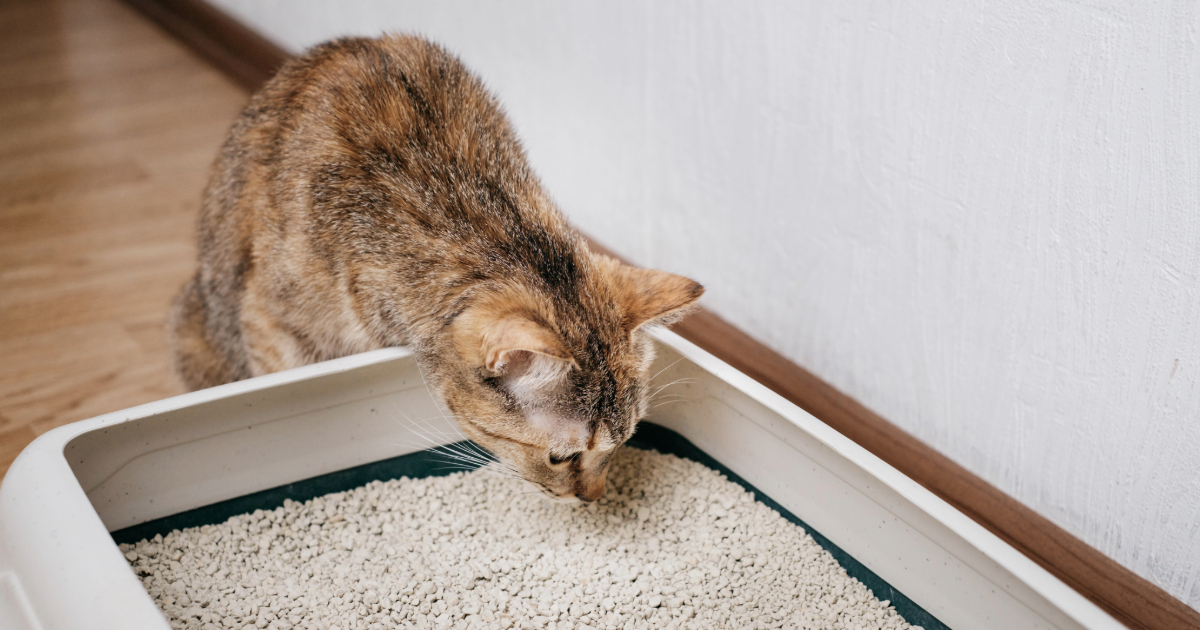
Ensure a Balanced Diet
A nutritious and balanced diet contributes to your cat’s overall health and reduces stress.
- Provide high-quality cat food appropriate for their age and health needs.
- Avoid overfeeding or sudden changes in diet, as this can upset their stomach and cause stress.
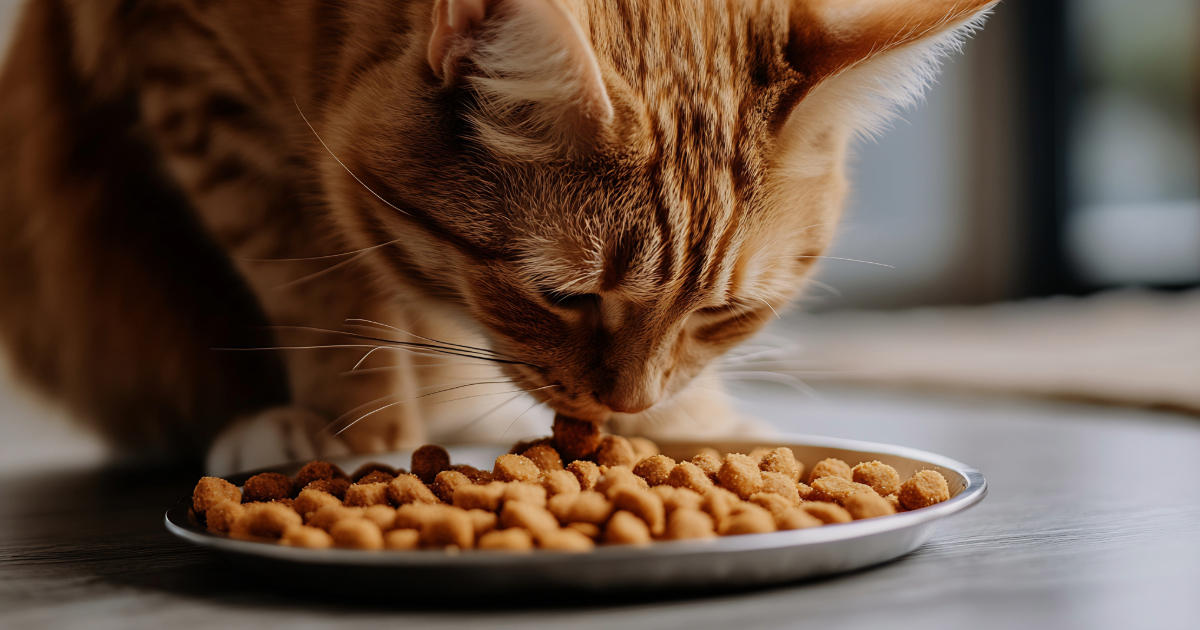
Balancing Boredom vs. Overstimulation: Provide Adequate Enrichment
Boredom can be a big problem for cats, but overstimulation can also lead to cat stress. Because cats have such sensitive hearing and skin, excessive noise and touching can cause a great deal of stress. Constant, loud TV and music, dogs barking and people shouting might be stressful to your cats. So is too much touching.
What you can do: Pay attention to your cat’s body language. Cats are open to being petted and played with, but be sure you’re in tune with your cat’s attitude toward touching – if there are any signs of discomfort, give the touching a rest. Communicate with any children or other people in your home so they keep this in mind, too. In terms of noise, make sure you keep your TV and music at a comfortable volume for your cat.
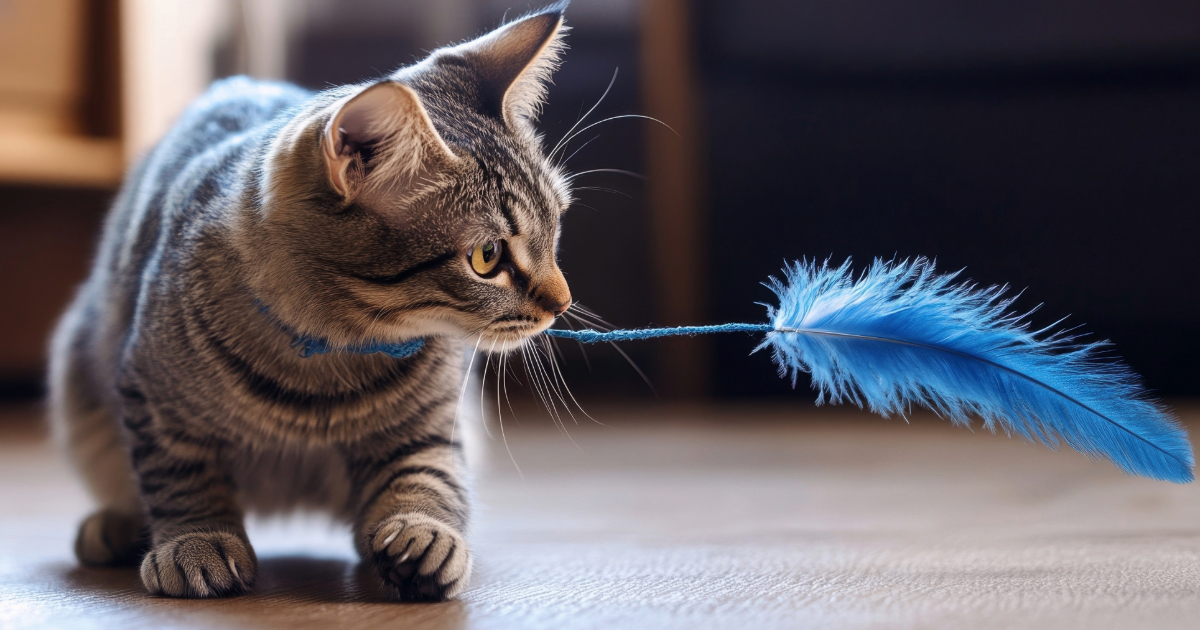
- Offer a variety of toys to encourage play and exercise.
- Rotate toys regularly to maintain your cat’s interest.
- Provide scratching posts to satisfy their natural instincts.
- Use puzzle feeders to make mealtime more interactive.
Use Calming Products When an If Needed
Calming aids can help reduce stress, especially during challenging situations like travel, vet visits, or thunderstorms.
- Consider pheromone diffusers, sprays, or collars designed for cats.
- Offer calming treats formulated with natural stress-relief ingredients.
If all natural methods do not solve reducing stress, then consider use of calming aids.
Remember to “share” this article on Cat Stress prevention with other Cat parents!
